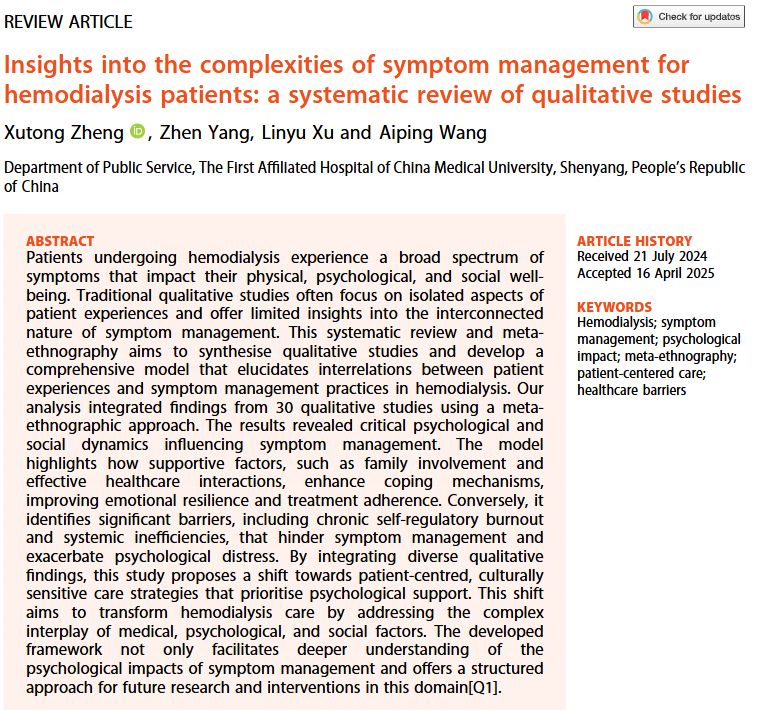Interested in behaviour change frameworks?
This review and theoretical synthesis looked at barriers and enablers to having blood pressure checked, identifying knowledge, identity, emotions, social contacts and environemntal factors as key influences.
🔗 Read more:
doi.org/10.1080/1743...
Screenshot of first page of the article.
Title: Theoretical mapping of the barriers and enablers to having bloodpressure checked among adults without a hypertensiondiagnosis: a systematic review and theoretical synthesis usingbehaviour change frameworks
Abstract: Identifying influences on engagement with blood pressure (BP) checkscan assist with intervention design for hypertension detection. Thissystematic review searched four databases (Embase, Emcare, MEDLINEand Web of Science) for papers published from 2015 to 2023(PROSPERO ID: CRD42023398002). Eligible studies reported influenceson BP checks in community or primary care settings. Data were codedand mapped using the Action, Actor, Context, Target, Time frameworkand Behaviour Change Wheel. Analysis of 18 studies generated eightthemes: (1) ‘Difficult-to-use devices with no accessible information onhow to use them’ (2) ‘Lack of awareness about hypertension and BPchecks’, (3) ‘Stigma and disconnect with identity’ (4) ‘Beliefs about thevalue of BP checks’, (5) ‘Fear and uncertainty’, (6) ‘Lack of appropriateand comfortable local services’ (7) ‘Financial cost of engaging with BPcheck services’ and (8) ‘Social contacts or health professionalrecommended a check’. Knowledge, identity, emotions, social contactsand environmental factors are key behavioural influences on adults’engagement with BP checks. Potential intervention strategies includeeducation on hypertension, addressing misconceptions about BPchecks, increasing access to BP check services and harnessing theinfluence of social norms, social connections and trusted sources toimprove engagement





























